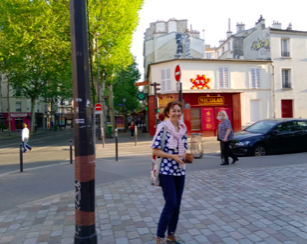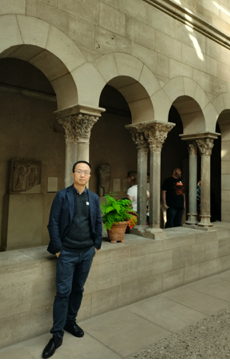
Title: The Representation of Old Age in Language, Literature,and among Chinese and French Students
Directors: Marie LAUREILLARD & Jiajun WANG
Discipline: Linguistics and Literature
Status: Incubating Project
Starting date: 2020
Directors
Summary
Linguistic analysis
Age is not simply based in our body’s biological realities, but also in the language we use to talk about it. Several studies (Lupu: 2009; Trincaz: 2011) have highlighted the different perception of age in relationship with language. The present project has a twofold interest. From a diachronic point of view, we are interested in the emergence of the old age phenomenon and the evolution of people’s perception. The study will first focus on the lexicon of oldness in Contemporary Chinese and French; after studying the semantic fields with interlanguage comparisons, the analysis will focus on articles published in the People's Daily from 1945 to 2015 on the Chinese side and Le Monde on the same period on the French side. On the synchronic level, the analysis field will extend to the speeches collected during the interviews, which will be studied on the content as well as the structure. We try to identify the interviewees’ topics of concern and their representation alike.
The representation of old people: comparison between Chinese and French students
Our second objective is to study the representation of old people by French and Chinese students in order to compare the positive and negative believes in the two populations. The population will include students from Universities of Lyon and Shanghai; the methodology will use questionnaires written in the native language of each group; the questionnaire will use free associations to get a quick access to the representational universe of the students and to collect spontaneous representations; we’ll include a part with semantics differentiator. The aim of this exploratory and descriptive approach will be to collect the terms specific to students’ representations, to compare them, and to analyze whether they could be linked to the native culture of each group.
The representation of old people in literature
“We’re either already old, or will be old. It’s an inevitable part of human life. I hope the book can offer some tips to people.”, the well-known writer Zhou Daxin (周大新) said about his new novel published in 2018. Getting Old Slowly (天黑得很慢) is the first full-length novel in China that cares about the aging society. It is a sensitive exploration of old age and the complex, hidden emotional worlds of the elderly in a rapidly aging population. Taking the form of pseudo-documentary, it reflects their problems, such as providing for them, going to a doctor, remarriage, children, pain, and loneliness in a country where this life stage is traditionally highly valued. We intend to analyze in this novel the semantic field as well as the perception and representations of old age today. The novel will be translated into French and published. Other novels or short stories relative to the topic might be also considered.








